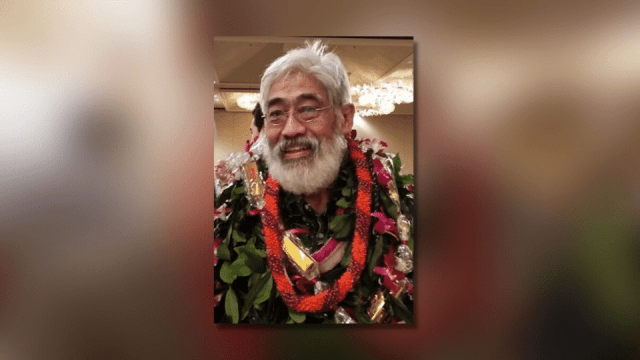
Aloha e JABSOM ʻOhana,
We sadly share that Clayton Chong, M.D., recently passed away.
Dr. Chong was an ʻImi Hoʻōla graduate and went on to graduate from JABSOM in 1980. He completed his oncology training at the University of Texas MD Anderson Cancer Center and his Masters in Public Health at Harvard University. He returned home to advocate and champion addressing cancer health disparities among Native Hawaiians.
Dr. Chong served at JABSOM as an Assistant Clinical Professor in Medicine for many years. He influenced many students and residents and participated in studies with the UH Cancer Center, including the pilot study on hula in breast cancer survivors. Many of you may have known Dr. Chong personally. Whether it was through his work on the Native Hawaiian Cancer Committee, through the American Cancer Society, on one of the ‘Imi Hale grants, as a member of `Ahahui o nā Kauka, or over his more than three decades at Queenʻs, Dr. Chong has left a profound and positive impact on our community.
We send our deepest sympathies to his friends and family.
Memories from Dr. Marjorie Leimomi Mau, founding chair of the Department of Native Hawaiian Health:
“I knew Clayton as one of the founders of `Ahahui o nā Kauka, along with Kekuni Blaisdell and Emmett Aluli. We shared many memories of Clayton as an advocate for Native Hawaiian Health. I am told that he was one of the first to suggest to Dean Cadman that a DNHH be created. And now here we are, almost 20 years later! From the beginning, Clayton participated in the crafting of our department as it stands today. He was insightful, direct, blunt, yet compassionate, especially when it meant the most. He was brilliant as an oncologist. I remember him telling me that it was the only specialty where the doctor makes the patient sick to make them better. We went to Kaho’olawe together with `Ahahui o nā Kauka. It was truly memorable. The DNHH also supported him in completing his Masters degree at Harvard School of Public Health. He had a great gift as a communicator. His talks were always poignant, informative, and sometimes provocative. I know his years at Queen’s, and before that at St. Francis were years he served with dignity to care for his patients and to give back to the community. He was revolutionary, original, and passionate. A “rebel” in the best sense of the word – a “rebel in a white coat”. We(I) will miss him in many, many ways.”